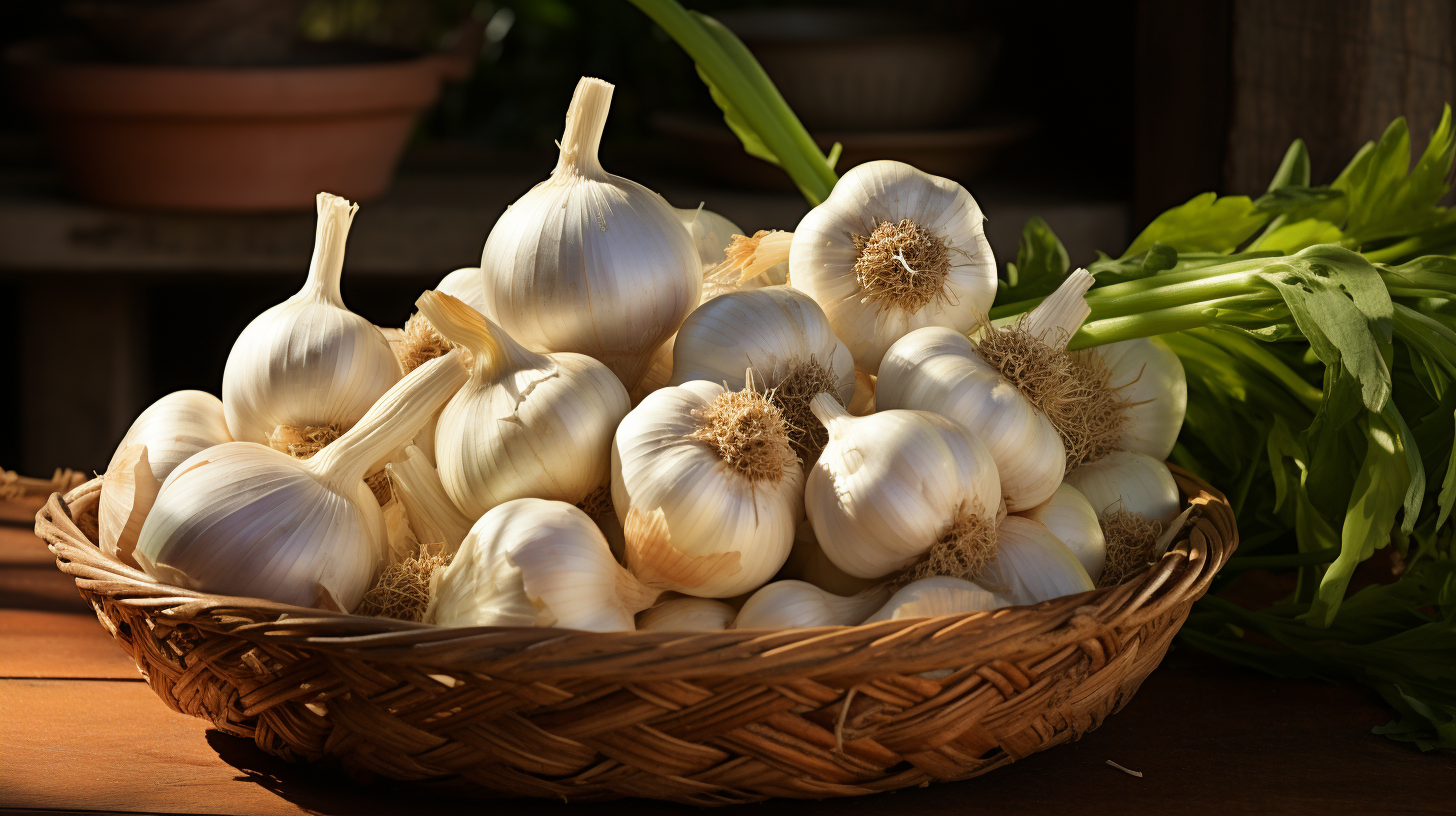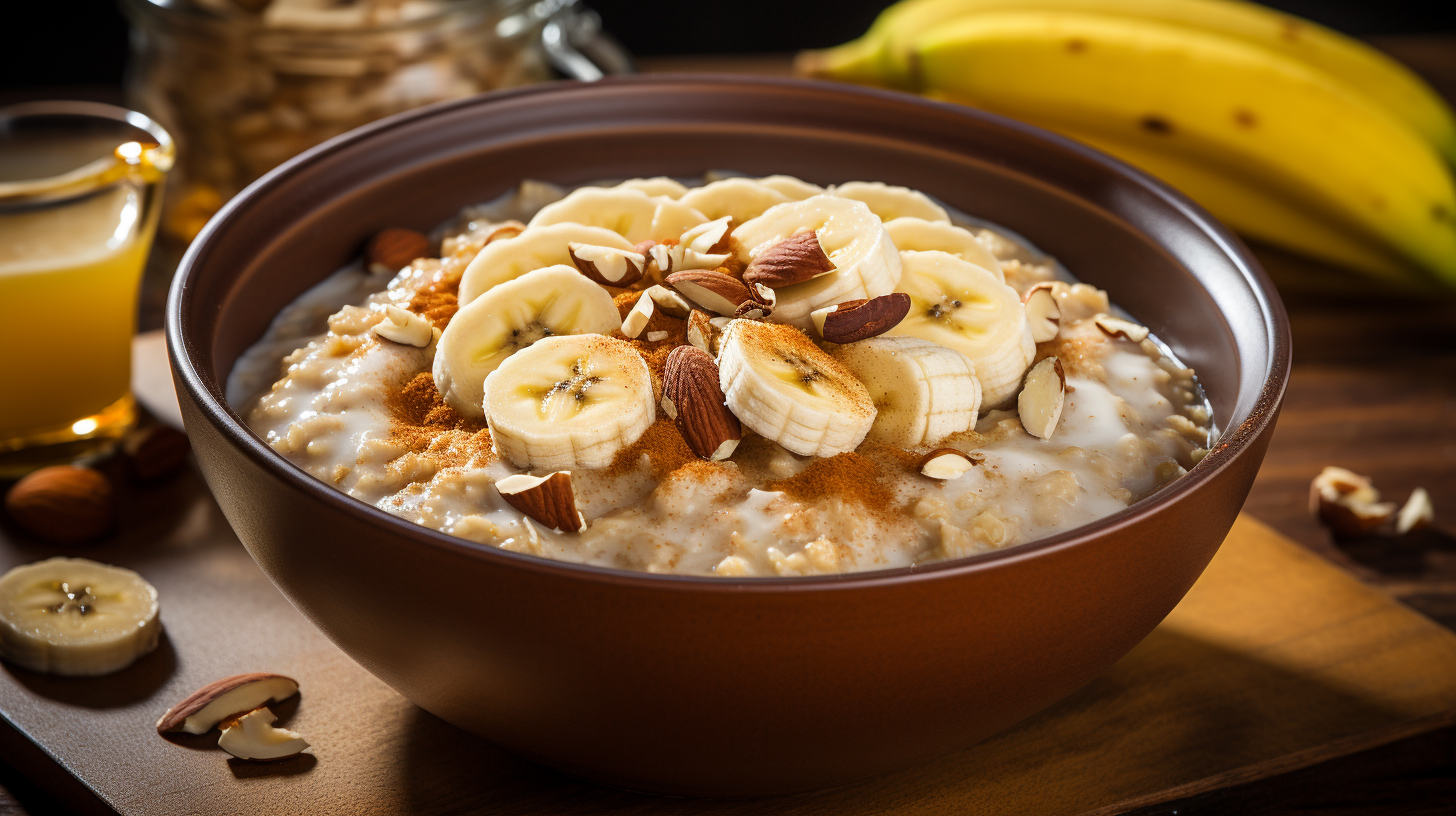As a woman over 40, you prioritize your health and well-being. But have you considered the role of prebiotic foods in supporting your overall wellness? You may have heard about probiotics, but what about their lesser-known counterparts, prebiotics?
Here’s a question for you: Are you aware of the essential prebiotic foods that can significantly impact your digestive health and overall well-being as a woman over 40?
In this article, we will delve into the world of prebiotic foods and how they can benefit women over 40. We will not only explore why prebiotics are vital for your gut health, but also provide you with a comprehensive list of the essential prebiotic foods every woman over 40 should eat. Get ready to discover the natural powerhouses that can help restore balance and vitality to your body.
Key Takeaways:
- Prebiotic foods play a crucial role in supporting digestive health for women over 40.
- Essential prebiotic foods include bananas, garlic, onions, and asparagus.
- Incorporating prebiotic-rich foods into your diet can improve gut health and overall well-being.
- Prebiotics can enhance weight management, hormone balance, and promote healthy aging.
- Consider whole, unprocessed natural sources of prebiotics for optimal health benefits.

Understanding Prebiotics and Gut Health
Prebiotics are a type of dietary fiber that can have numerous health benefits, especially for women over 40. These special fibers are not directly digestible by our bodies but instead act as “food” for the beneficial bacteria in our gut.
By nourishing the good bacteria in our gastrointestinal tract, prebiotics help create a healthy and balanced gut microbiome. This, in turn, can have a positive impact on our overall digestive wellness and support better health as we age.
Research has shown that incorporating prebiotic foods into our diet can provide a range of benefits for women over 40, including:
- Improved digestion and absorption of nutrients
- Enhanced immune function
- Reduced inflammation
- Lower risk of chronic diseases
- Improved mood and mental health
- Support for healthy weight management
Furthermore, prebiotics have been found to help regulate bowel movements, prevent constipation, and maintain a healthy balance of gut bacteria.
To truly understand the benefits of prebiotics, it’s important to recognize their role in the gut. Our gastrointestinal tract houses trillions of microorganisms, including bacteria, that play a vital role in our overall health. The delicate balance of these microorganisms is crucial for proper digestion, nutrient absorption, and even our immune system function.
The gut microbiome is often referred to as our “second brain” due to its impact on overall well-being. By nourishing the beneficial bacteria through prebiotics, we can foster a healthier gut environment, which in turn supports better overall health.
Gut Health and Hormonal Changes
For women over 40, hormonal changes, particularly during perimenopause and menopause, can have a significant impact on gut health. Fluctuations in hormones can affect digestion, nutrient absorption, and the balance of gut bacteria.
By incorporating prebiotic foods into their diet, women over 40 can support their gut health during these hormonal changes. Prebiotics can help regulate bowel movements, reduce bloating, and ease digestive discomfort that may arise during this stage of life.
The Role of Prebiotic Foods
So, what are the best prebiotic foods to include in your diet? Here are some examples:
| Food | Prebiotic Content |
|---|---|
| Garlic | Fructooligosaccharides (FOS) |
| Onions | FOS, inulin |
| Leeks | Inulin |
| Asparagus | Inulin |
| Bananas | Inulin |
These foods are just a few examples of prebiotic-rich options. Including a variety of fruits, vegetables, whole grains, and legumes in your diet can provide a diverse range of prebiotics and support a healthy gut microbiome.
Remember, it’s essential to consume these prebiotic foods regularly for maximum benefits. Incorporate them into your meals and snacks to nourish your gut and promote overall well-being.

Incorporating Prebiotic Foods into Your Diet
As a woman over 40, maintaining a healthy gut is essential for overall well-being. Incorporating prebiotic foods into your daily diet can help support a thriving gut microbiome and optimize your digestive health. Here are some practical tips to easily include prebiotic foods in your meals:
1. Plan Your Meals
Take a few minutes each week to plan your meals and snacks. This will ensure that you have prebiotic-rich options readily available and make it easier to incorporate them into your diet. Consider adding foods like onions, garlic, and asparagus to your grocery list, as these are excellent sources of prebiotics.
2. Make a Prebiotic Grocery List
When you go grocery shopping, be intentional about selecting prebiotic foods. Include items such as bananas, oats, and flaxseeds in your cart. These foods are not only packed with prebiotics but also offer a range of other health benefits.
3. Get Creative with Recipes
Experiment with recipes that feature prebiotic foods as key ingredients. For example, you can try adding chicory root to your coffee or incorporating Jerusalem artichoke into a stir-fry. By exploring new recipes, you can diversify your prebiotic intake and make mealtime more exciting.
“Incorporating prebiotic foods into your diet can have a positive impact on your gut health and overall well-being.”
4. Snack on Prebiotic Rich Foods
Snacking on prebiotic-rich foods can be an excellent way to boost your daily intake. Consider keeping snacks like almonds, apples, and hummus on hand for a quick and convenient prebiotic fix.
5. Aim for Variety
Include a wide range of prebiotic foods in your diet to ensure you’re getting diverse types of prebiotic fibers. By incorporating foods like leeks, dandelion greens, and bananas, you can promote the growth of a diverse and healthy gut microbiome.
6. Gradually Increase Prebiotic Intake
If you’re new to incorporating prebiotic foods into your diet, it’s best to start slowly. Gradually increase your intake over time to allow your body to adjust. This can help prevent potential digestive discomfort and ensure a smooth transition to a prebiotic-rich diet.
By following these practical tips, you can easily incorporate prebiotic foods into your daily diet. Remember, consistency is key when it comes to reaping the benefits of prebiotics for your digestive health.
| Prebiotic Foods | Benefits |
|---|---|
| Onions | Supports the growth of beneficial gut bacteria |
| Garlic | Helps reduce inflammation and supports immune function |
| Asparagus | Improves digestion and supports a healthy weight |
| Bananas | Rich in potassium and promotes regular bowel movements |
| Oats | Provides sustained energy and helps lower cholesterol levels |
| Flaxseeds | Rich in omega-3 fatty acids and supports heart health |
The Top Prebiotic Foods for Women Over 40
As a woman over 40, maintaining good gut health is essential for overall well-being. Incorporating prebiotic foods into your diet can help support a healthy gut microbiome and promote digestion. Here are the top prebiotic foods recommended for women over 40:
- Chicory Root: This root vegetable is high in inulin, a prebiotic fiber that promotes the growth of beneficial gut bacteria.
- Garlic: Known for its numerous health benefits, garlic is also a great source of prebiotics that can help support a healthy gut microbiome.
- Onions: Onions contain a type of prebiotic fiber called fructooligosaccharides, which can help nourish the good bacteria in your gut.
- Asparagus: Asparagus is not only delicious but also rich in prebiotic fibers that support a healthy digestive system.
- Bananas: Bananas are a convenient and tasty source of prebiotics, particularly resistant starch, which acts as food for beneficial gut bacteria.
- Apples: Apples are not only a great source of fiber but also contain prebiotics like pectin, which can help promote a healthy gut microbiome.
- Flaxseeds: Flaxseeds are rich in prebiotic fibers and also provide omega-3 fatty acids, making them a nutritious addition to your diet.
By incorporating these top prebiotic foods into your diet, you can support a healthy gut microbiome and promote overall digestive wellness. Remember to consult with a healthcare professional before making any significant changes to your diet.

Fiber-Rich Prebiotic Foods
For women over 40 looking to improve their digestive health, incorporating fiber-rich prebiotic foods into their diet is crucial. Fiber plays a vital role in supporting overall gut health and can have numerous benefits for women in this age group.
Fiber acts as a prebiotic, providing nourishment to the beneficial bacteria in the gut, which in turn helps promote a healthy digestive system. It aids in regular bowel movements, prevents constipation, and supports optimal nutrient absorption.
In addition, a prebiotic-rich diet for women over 40 can contribute to weight management, hormone balance, and healthy aging. By promoting satiety and reducing cravings, fiber-rich prebiotic foods can support weight management goals. They also help regulate hormones and may alleviate symptoms associated with menopause. Furthermore, these foods provide essential nutrients that support overall vitality and well-being as you age.
To incorporate fiber-rich prebiotic foods into your diet, consider including the following options:
- Artichokes
- Asparagus
- Garlic
- Onions
- Leeks
- Chicory root
- Bananas
- Oats
- Flaxseeds
Remember to gradually increase your fiber intake and drink plenty of water to avoid any digestive discomfort. It’s important to note that individual dietary needs may vary, so consult with a healthcare professional or registered dietitian to determine the right amount of fiber for your specific needs.
Quote: “Adding fiber-rich prebiotic foods to your diet can do wonders for your digestive health as a woman over 40.” – Dr. Sarah Thompson, Registered Dietitian
Natural Prebiotic Foods
When it comes to promoting good gut health, natural prebiotic foods are a powerhouse for women over 40. These foods are abundant in dietary fibers that cannot be digested by the body, but instead serve as fuel for the beneficial bacteria in our gut. By nourishing these bacteria, prebiotic foods help maintain a healthy gut microbiome, which in turn supports digestion, immune function, and overall well-being.
Choosing whole, unprocessed foods is key when incorporating natural prebiotics into your diet. This ensures that you’re getting the maximum nutritional benefits without unwanted additives or excessive processing that may diminish their prebiotic content.
Here are some natural prebiotic foods that you can easily include in your daily meals and snacks:
| Prebiotic Food | Nutritional Benefits |
|---|---|
| Garlic | Rich in inulin, which supports the growth of beneficial bacteria in the gut. |
| Onions | Contain fructooligosaccharides (FOS), a type of prebiotic fiber that helps nourish gut bacteria. Onions also have anti-inflammatory properties. |
| Asparagus | High in inulin and fiber, promoting the growth of good bacteria and supporting digestive health. |
| Bananas | Contain resistant starch, a prebiotic fiber that passes undigested into the colon and feeds beneficial bacteria. |
| Artichokes | Rich in inulin and fiber, promoting gut health and supporting regular bowel movements. |
Incorporating these natural prebiotic foods into your diet can have a significant impact on your overall health and well-being. To reap the maximum benefits, aim to include a variety of these foods in your meals and snacks, ensuring a balance of flavors and nutrients.
Remember, the key is to prioritize whole, unprocessed foods to get the most out of the natural prebiotic content. By making these foods a regular part of your diet, you’ll be nourishing your gut microbiome and supporting your body’s natural ability to thrive.
Prebiotic Supplements for Women Over 40
While incorporating prebiotic foods into your diet is important, some women over 40 may find it beneficial to supplement their intake with prebiotic supplements. These supplements can provide an additional source of prebiotics, helping to support gut health and overall well-being.
When choosing a prebiotic supplement, it’s essential to consider the quality and effectiveness of the product. Look for supplements that contain a variety of prebiotic fibers, such as inulin, fructooligosaccharides (FOS), and galactooligosaccharides (GOS). These fibers have been shown to have positive effects on gut health and can promote the growth of beneficial bacteria in the gut.
It’s also important to select supplements that are specifically formulated for women over 40. These supplements may contain additional ingredients that can support women’s unique nutritional needs during this stage of life.
Before starting any supplement regimen, it’s recommended to consult with a healthcare professional or registered dietitian. They can help determine the appropriate dosage and ensure that the supplement is safe for you to take.
While prebiotic supplements can be beneficial, it’s important to remember that they should not replace a healthy, balanced diet rich in prebiotic foods. Supplements should be used as a complement to a nutrient-dense diet, rather than a substitute.
Quote: “Prebiotic supplements can be a convenient way to boost your prebiotic intake, especially if you have dietary restrictions or find it challenging to incorporate enough prebiotic foods into your meals.” – Dr. Emily Collins, registered dietitian.
To help you make an informed decision, here are some recommended prebiotic supplements for women over 40:
| Supplement Name | Key Ingredients | Benefits |
|---|---|---|
| Brand A Prebiotic Complex | Inulin, FOS, GOS | – Supports a healthy gut microbiome – Promotes digestive wellness – Enhances nutrient absorption |
| Brand B Women’s Prebiotic Blend | Inulin, FOS, cranberry extract | – Supports urinary tract health – Balances gut bacteria – Boosts immune system |
| Brand C Digestive Health Formula | Inulin, FOS, probiotics | – Improves digestive function – Increases beneficial bacteria – Reduces bloating and discomfort |
Note: These are just a few examples of prebiotic supplements available on the market. It’s important to choose a supplement that aligns with your specific dietary needs and preferences.
It’s worth mentioning that supplements may interact with certain medications or medical conditions. Always consult with your healthcare provider or pharmacist before introducing any new supplements into your routine.
Incorporating prebiotic supplements, in combination with a diet rich in prebiotic foods, can provide an effective way to support gut health and overall wellness for women over 40.

Prebiotic Foods and Weight Management
When it comes to maintaining a healthy weight and metabolism, prebiotic foods can play a crucial role in the diet of women over 40. These foods not only provide essential nutrients but also promote the growth of beneficial gut bacteria, which can have a significant impact on weight management.
A diet rich in prebiotic foods can help regulate appetite, improve satiety, and enhance the body’s ability to burn calories. Additionally, these foods can support healthy digestion and nutrient absorption, making it easier for women over 40 to maintain a balanced and nourishing diet.
Here are some prebiotic foods that you can include in your diet for effective weight management:
- Garlic
- Onions
- Asparagus
- Jerusalem artichokes
- Bananas
- Chicory root
- Oats
These foods are not only delicious but also packed with beneficial prebiotic fibers that can help support a healthy weight. By incorporating these foods into your daily meals, you can optimize your digestive health and improve your body’s ability to maintain a healthy weight and metabolism.
“Eating a diet rich in prebiotic foods can be a game-changer for weight management. These foods not only provide essential nutrients but also support the growth of beneficial gut bacteria, which can have a positive impact on your body’s ability to maintain a healthy weight.”
Pairing prebiotic foods with a balanced diet and regular exercise can further enhance their benefits for weight management. By focusing on whole, unprocessed foods and making mindful choices, you can create a diet that promotes gut health and supports your weight management goals.
Next, we will explore the potential benefits of prebiotic foods for hormone balance in women over 40. Let’s dive into how these foods can positively influence hormone production and regulation, particularly during menopause.
Prebiotic Foods and Hormone Balance
As a woman over 40, you may be familiar with the hormonal changes that occur during menopause. These changes can lead to various symptoms, including hot flashes, mood swings, and sleep disturbances. However, did you know that incorporating prebiotic foods into your diet may help support hormone balance during this stage of life?
Prebiotics are a type of fiber that cannot be digested by the human body. Instead, they serve as food for the beneficial bacteria in your gut. These bacteria play a crucial role in hormone production and regulation, and a healthy gut microbiome is essential for overall hormonal balance.
By consuming prebiotic foods, you can support the growth of beneficial bacteria in your gut, leading to a healthier balance of hormones. Research has shown that prebiotics can help optimize estrogen levels, which may alleviate some menopausal symptoms such as hot flashes and night sweats.
In addition, prebiotic foods can also support the production of other hormones, such as serotonin and melatonin, which are crucial for mood regulation and sleep. By promoting a healthy gut microbiome, prebiotics can help reduce mood swings and improve sleep quality, enhancing your overall well-being during this hormonal transition.
So, which prebiotic foods should you include in your diet to support hormone balance? Let’s take a look at some examples:
- Onions and garlic: These aromatic vegetables are rich in prebiotic fibers, such as inulin and fructooligosaccharides (FOS).
- Chicory root: It is a great source of inulin, a prebiotic fiber that can nourish beneficial gut bacteria.
- Asparagus: This vegetable contains a prebiotic fiber called inulin, which can provide support for hormone balance.
- Bananas: They are not only a good source of potassium but also contain resistant starch, a type of prebiotic fiber.
- Flaxseeds: These tiny seeds are high in soluble and insoluble fiber, promoting a healthy gut environment.
By incorporating these prebiotic foods into your daily meals, you can support hormone balance and alleviate some of the symptoms associated with menopause. Remember to gradually introduce these foods into your diet and listen to your body’s response to determine the right amount for you.
“To promote hormone balance during menopause, it’s essential to prioritize prebiotic-rich foods in your diet. These foods can nourish your gut bacteria and support the production and regulation of hormones, helping you navigate the hormonal changes with greater ease.” – Dr. Jane Thompson, Nutrition Specialist
Prebiotic Foods and Aging Gracefully
As women age, it becomes increasingly important to prioritize their health and well-being. One key aspect of maintaining vitality and aging gracefully is through a balanced diet that includes prebiotic foods.
Prebiotics are types of dietary fibers that nourish the beneficial bacteria in your gut, promoting a healthy digestive system. By incorporating prebiotic foods into your diet, you can support not only your digestion but also various aspects of aging, such as skin health, cognitive function, and overall vitality.
The Role of Prebiotic Foods in Maintaining Skin Health
As you age, your skin undergoes changes that can lead to dryness, wrinkles, and a loss of elasticity. However, consuming prebiotic foods can help improve your skin health from within.
Prebiotics promote the growth of beneficial gut bacteria, which has been linked to improved skin health. These bacteria produce short-chain fatty acids that have anti-inflammatory properties and can help reduce inflammatory skin conditions like acne, eczema, and psoriasis.
Additionally, prebiotic foods rich in antioxidants, such as fruits, vegetables, and whole grains, can help protect your skin against damage caused by free radicals and support a youthful complexion.
Enhancing Cognitive Function with Prebiotic Foods
As women age, cognitive function may decline. However, research suggests that prebiotics may play a role in supporting brain health and cognitive function.
Prebiotics can influence the gut-brain axis, a complex communication network between your gut and brain. This connection suggests that a healthy gut microbiome, promoted by prebiotic foods, may positively impact cognitive processes such as memory, attention, and mood regulation.
Incorporating prebiotic foods like whole grains, bananas, onions, and garlic into your diet can provide the necessary nutrients to support a healthy brain and potentially reduce the risk of age-related cognitive decline.
Overall Vitality and Well-Being
By nourishing your gut microbiome with prebiotic foods, you can support overall vitality and well-being as you age.
Healthy gut bacteria not only aid in digestion but also contribute to the production of essential nutrients and vitamins. By maintaining a diverse and balanced gut microbiome through prebiotic foods, you can optimize nutrient absorption and support your body’s natural processes.
Furthermore, prebiotic foods can help regulate your immune system, leading to a strengthened immune response and reduced risk of age-related illnesses. By supporting a healthy immune system, you can enhance your body’s ability to fight off infections and maintain optimal health.
By incorporating prebiotic foods into your diet, you can nourish your body from within and promote healthy aging. From supporting skin health to enhancing cognitive function and overall vitality, prebiotic foods play a crucial role in helping women over 40 age gracefully.

Conclusion
In conclusion, incorporating prebiotic foods into the diet of women over 40 is essential for enhancing digestive wellness and supporting overall health. Throughout this article, we have emphasized the benefits of prebiotics and highlighted the importance of including them in daily meals.
By consuming prebiotic-rich foods such as bananas, onions, garlic, and oats, you can promote the growth of beneficial gut bacteria and improve digestion. These foods not only provide essential nutrients but also have a positive impact on weight management, hormone balance, and healthy aging.
Remember to choose natural and unprocessed sources of prebiotics whenever possible. While prebiotic supplements can be beneficial in some cases, it is always best to prioritize whole foods for optimal health benefits. By consistently incorporating prebiotic foods into your diet, you can support a healthy gut, maintain a balanced hormone profile, and age gracefully.
FAQ
What are prebiotics and why are they important for women over 40?
Prebiotics are non-digestible fibers that serve as food for beneficial bacteria in the gut. They help nourish and support the growth of these bacteria, promoting a healthy balance of gut flora. For women over 40, maintaining gut health is particularly important as it can support digestion, nutrient absorption, immune function, and overall well-being.
How can I incorporate prebiotic foods into my daily diet?
There are several simple ways to include prebiotic foods in your meals. Start by adding foods like onions, garlic, leeks, and asparagus to your recipes. You can also incorporate whole grains, legumes, and certain fruits and vegetables that are high in prebiotic fibers. Experiment with different recipes and try to include a variety of prebiotic-rich foods throughout the day.
What are some of the top prebiotic foods for women over 40?
Some of the top prebiotic foods for women over 40 include chicory root, Jerusalem artichoke, dandelion greens, bananas, oats, and flaxseeds. These foods are not only rich in prebiotics but also provide other essential nutrients that can support overall health and well-being.
Are there any natural sources of prebiotics that I should focus on?
Yes, natural sources of prebiotics are highly recommended. Whole, unprocessed foods such as fruits, vegetables, whole grains, legumes, and nuts and seeds are excellent sources of prebiotics. Incorporating these foods into your diet can provide a wide range of nutrients and support your gut health.
Should I consider taking prebiotic supplements as a woman over 40?
While prebiotic supplements can be an option, it is generally recommended to focus on obtaining prebiotics from whole foods. Supplements should not replace a healthy diet rich in prebiotic foods. If you do choose to take supplements, it is best to consult with a healthcare professional to ensure the quality and suitability of the product.
Can prebiotic foods help with weight management?
Yes, prebiotic foods can be beneficial for weight management. They can help increase feelings of fullness, regulate appetite, and support healthy digestion and metabolism. Incorporating prebiotic-rich foods into your diet can complement a balanced and nutritious eating plan for sustainable weight management.
Can prebiotic foods help with hormone balance in women over 40?
Prebiotic foods can play a role in hormone balance by supporting a healthy gut microbiome. The gut microbiome plays a crucial role in metabolizing and regulating hormones. By nourishing the gut with prebiotic foods, you may help promote a healthy balance of hormones, especially during times of hormonal changes like menopause.
How do prebiotic foods contribute to healthy aging?
Prebiotic foods can contribute to healthy aging by supporting optimal gut function and digestion. They can also help maintain a strong immune system, support cognitive function, and promote skin health. Including prebiotic foods in your diet can help enhance overall vitality and well-being as you age.






